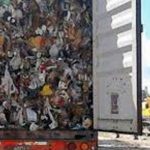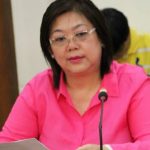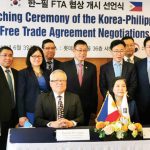UMALIS na kahapon ng umaga sa Mindanao International Container Terminal (MICT) sa Tagoloan, Misamis Oriental ang container ship na magbabalik sa South Korea ng 2,400 metric tons ng mga basura.
Matapos ang may 19 na buwan na pananatili sa Verde Soko compound sa Phividec Industrial Estate sa bayan ng Tagoloan, ang illegal waste imports mula sa South Korea ay inalis na ng MICT port lulan ng MV Nordmarsh, na kinumpirma rin ng Bureau of Customs-Region 10 (BOC-10) sa EcoWaste Coalition.
Ang natitirang 2,700 tonelada ng basura ng South Korea ay inaasahang iuuwi rin pabalik sa kanilang bansa sa Pebrero 9 matapos itong i-repack at mailipat mula sa Phividec facility tungo sa MICT stockyard.
Iniulat ni BOC-10 Port Collector John Simon na sasagutin ng gobyerno ng South Korea ang shipping cost na nagkakahalaga ng P10 milyon alinsod sa “Basel Convention on the Control of Transboundary Movements of Hazardous Wastes and their Disposal” kung saan pawang state parties ang Filipinas at South Korea.
Nakasaad sa Article 9 ng Basel Convention na “in case of a transboundary movement of hazardous wastes or other wastes deemed to be illegal traffic as the result of conduct on the part of the exporter or generator, the State of export shall ensure that the wastes in question are taken back by the exporter or the generator or, if necessary, by itself into the State of export.”
“We are breathing a sigh of relief now that the first batch of the contaminated plastic waste wrongly declared as ‘plastic synthetic flakes’ has departed,” pahayag ni Aileen Lucero, National Coordinator, EcoWaste Coalition, na lumahok sa multi-stakeholders’ meetings na dinaluhan ng mga kinatawan ng gobyerno ng South Korea upang maresolba ang usapin.
Ang Basel Ban Amendment, ay nagbabawal sa member states ng Organization for Economic Cooperation and Development (OECD), the European Union (EU), at Liechtenstein ng page-export ng mapanganib na basura sa developing countries.









